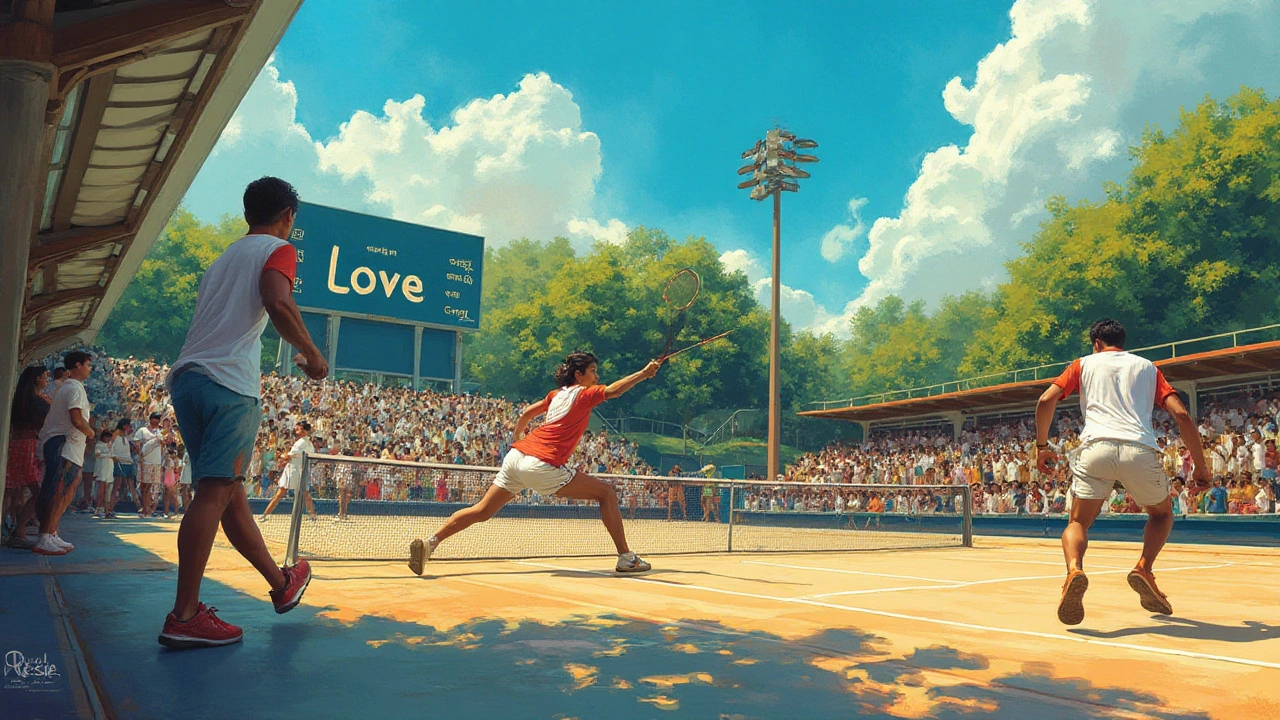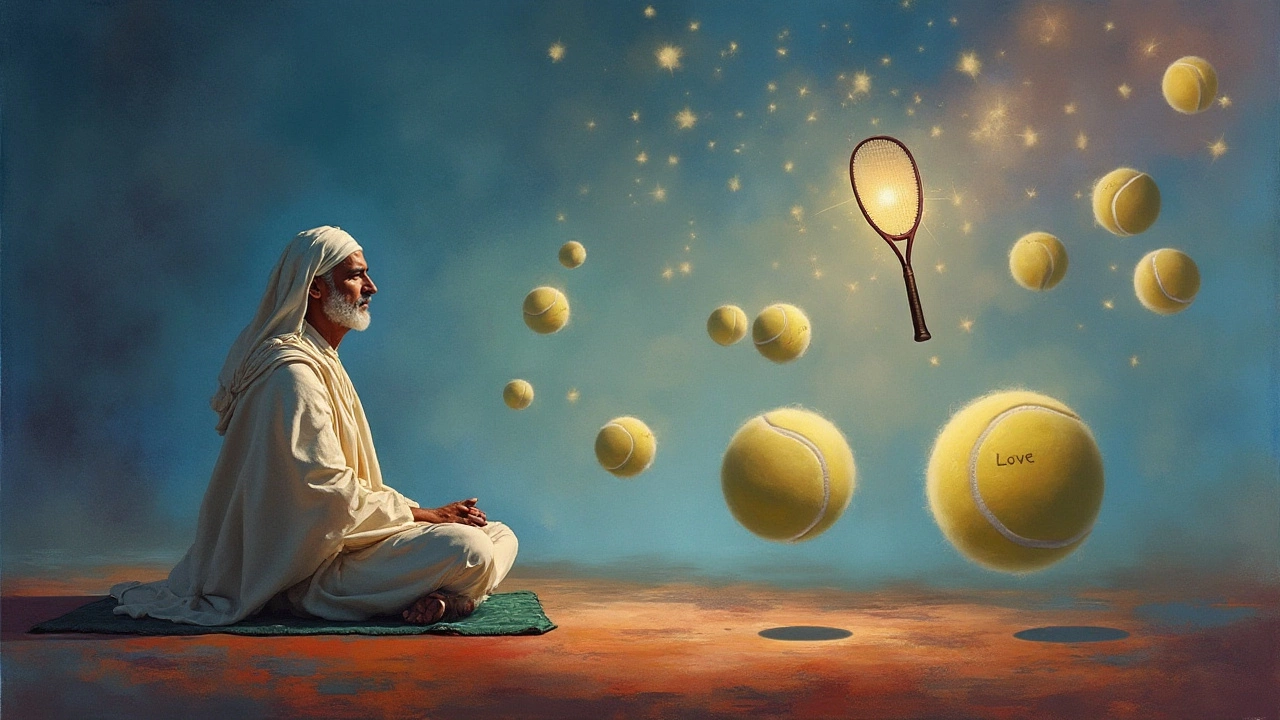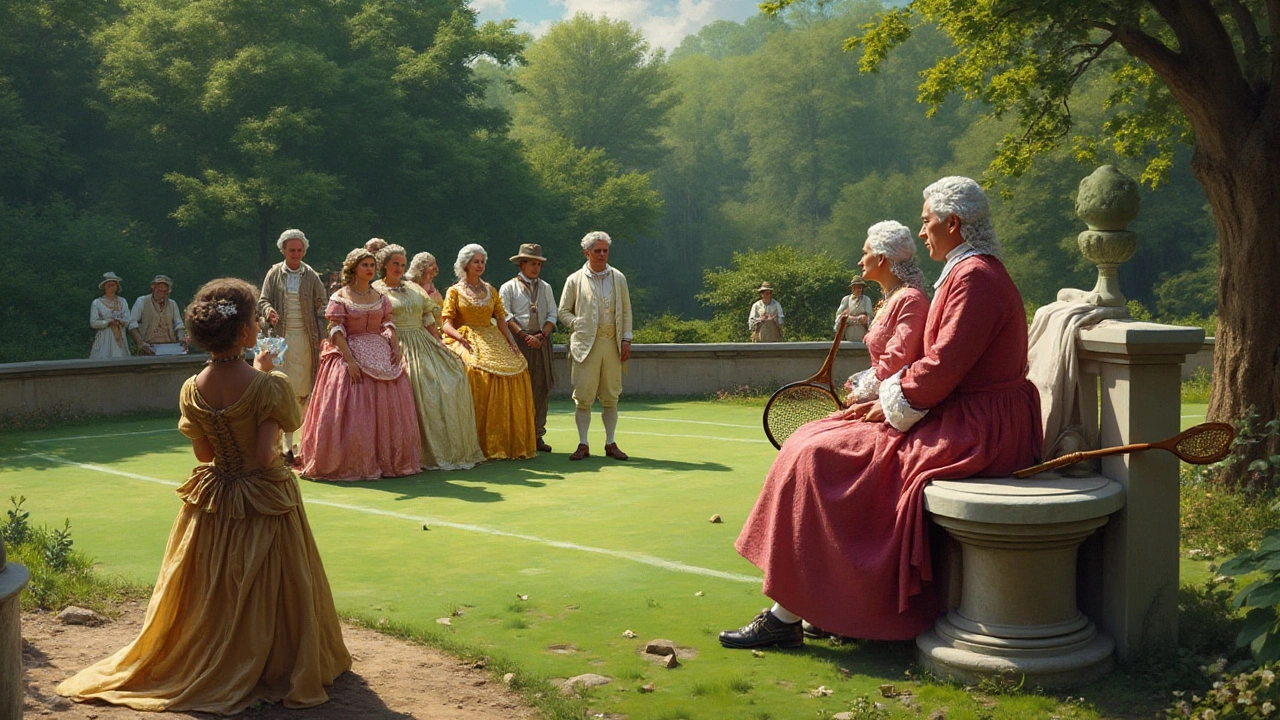For those unfamiliar with tennis, the scoring system can seem like an unsolvable puzzle. Among the curious terms is 'love,' which signifies a score of zero. While devotion may not immediately come to mind as you picture intense rallies and high-stakes matches, the origins of this whimsical term are surprisingly captivating.
Unlike most sports, where scoring begins at one, tennis has its reasons—though not fully established by historians—why a word associated with affection is used to denote a lack of points. Various theories offer clues, each providing a blend of charm and historical insight.
Join us on this journey as we unravel the stories and explore why tennis retains this intriguing piece of linguistic history. Whether rooted in bygone eras or through the lens of cultural evolution, 'love' has secured its place in the lexicon of tennis, enriching the sport's unique character.
- The Mystique of 'Love'
- Theories and Origins
- Cultural Influence on Terminology
- Love in Modern Tennis
- Impact on Players and Fans
The Mystique of 'Love'
In the world of tennis, few terms are as enigmatic as the word 'love,' signifying a score of zero. This choice of terminology is both peculiar and poetic, inviting endless speculations and curiosity. One widely considered theory is the term's origin from the French word 'l'oeuf,' meaning 'egg,' a reference to the zero's oval shape. Though not universally accepted, this theory aligns with the origins of many tennis terms that have French roots, offering a plausible lineage for the term we use today. Such insights into 'love' unwrap the *tennis scoring* mysteries that captivate many fans and players alike.
Another theory suggests that 'love' derived from the phrase 'playing for love'—meaning to play for the joy of the game rather than for riches. This notion echoes the sport's gentlemanly origins, where honor and idealism were paramount. As tennis grew beyond its aristocratic beginnings, the retention of such terms showcased the sport's cultural heritage. This blends rich history with a word typically associated with affection, deepening the layers of context tennis fans engage with whenever the score reads 'love.'
Despite the ambiguity, the term's continued usage in *modern tennis* showcases the sport's tendency to embrace tradition. The preservation of such quirky terminology stands testament to tennis's charm, where a term can carry not just practical scoring information but also historical intrigue. While we may never completely unravel the term's ancient secrets, it seamlessly blends sport with language, infusing each match with a dose of wonder. As tennis evolves, 'love' remains timeless, narrating a story that spans continents and centuries, inviting us all to ponder its peculiar existence.
Theories and Origins
When unraveling the origins of why 'love' represents zero in tennis scoring, it's necessary to plunge into a labyrinth of theories, anecdotes, and linguistic quirks. The French, renowned for their influence over the game's development, provide a compelling yet charming conjecture. One popular belief roots itself in the expression "l'œuf," which translates to "the egg" in French. This theory argues that the zero resembles an egg's shape, and thus the term 'love' slowly anglicized from "l'œuf" during language transitions, finding its home in the English vocabulary without losing its earlier visual reference.
There's another school of thought linked to the philosophy of the game itself. Tennis is both a pastime and a professional pursuit, where the joy and 'love' for the game often overshadow the mere record of scores. The purist viewpoint elevates the player who derives enjoyment, irrespective of the numbers on the board, suggesting 'love' as an acknowledgment of pure enthusiasm and participation.
Yet, such theories do not fully satisfy the curious minds that inquire deeper. Tennis history, marked by British influence, entertains another fascinating possibility. The British sense of sporting etiquette cherished gallant language, where playing 'for the love' meant being involved purely out of passion rather than competitiveness or material gain. This explanation aligns well with the reasoning of 'love' symbolizing zero, a place where one can cast aside result-driven motivations.
In a conversation with historians and tennis experts, an academic from a renowned sporting institution noted,
The charm of tennis resides in its idiosyncratic elements, like scoring. Dissecting 'love' shows us how sport is woven with threads of language, history, and shared human experience, all in one tapestry.This quote emphasizes tennis's depth beyond its play.
While hypotheses vary, each element of *tennis scoring* illuminates the layers of intrigue shaped over centuries. Perhaps it's this riveting mixture of fact and folklore that keeps the allure of such traditions alive, enticing new generations to decipher the enigma of 'love' in one of the world's most beloved sports.

Cultural Influence on Terminology
The concept of linguistics shaping the world of sports is not new; however, tennis terminology showcases a unique blend of cultural evolution and linguistic creativity. The intriguing use of 'love' for a score of zero is a part of this fascinating mix. The origins of this peculiar term are often traced back to different languages, primarily French and Dutch, yet the answer isn’t entirely straightforward.
Understanding how language influences sport involves looking at historical interactions among cultures. The current consensus is that 'love' may stem from the French word 'l'oeuf,' meaning egg, likening the shape of an egg to zero. But this is not the only theory; another posits that the word could be derived from the Dutch expression 'iets voor lof doen,' meaning to play for praise rather than money. Despite its mysterious beginnings, 'love' in tennis has added a layer of elegance and mystery that continues to enrich the sport’s character.
While language offers us practicality, it also connects us across different cultures. Tennis’s adoption of 'love' reflects how intertwined the game has become with its multilingual history, drawing fans from all over the globe. The English language further embraced 'love' as a metaphor for enthusiasm or commitment, aligning with how tennis players show their dedication to the game. An engaging take from renowned historian John McPhee explains it beautifully,
"Language in sports can be a reflection of its history and identity, making each term a story in its own right."Language is constantly evolving, and words, even centuries old, can find new life in modern contexts. 'Love' in tennis is a testament to how sports terminology can transcend mere practical usage, connecting deeply with culture and emotion.
The cultural significance of tennis terminology is illuminated when considering its global reach. From French aristocrats to today's international tournaments, each term embraced by tennis carries with it a story, adding layers of meaning beyond the scoreboard. Inviting cultural interpretations endlessly enriches the fan experience, making them a living part of the sport’s unfolding story. So, next time you hear 'love' during a tennis match, remember it's more than just a zero; it's a bridge connecting the present moment with its rich, varied past.
Love in Modern Tennis
The enigmatic term 'love' has transitioned from its historical roots to a symbol of modern tennis traditions. In contemporary tournaments, whether it's the grandeur of Wimbledon or the intense energy of the US Open, the word 'love' evokes a connection with the sport's storied past. While a score of zero might suggest a lack of achievement in the numerical sense, the atmosphere in which 'love' is frequently heard is anything but lacking. It represents the ongoing passion fans and players share, adding an inherent romanticism to the scoring bout. As the umpire calls out "love-40," there's a silent acknowledgment of acquiring love for the game itself, an ironic yet fascinating tie to the sport's ever-progressing narrative.
In the digital age, where tennis is accessible from screens worldwide, the scoring terminology retains its relevance and charm. With various games streamed live or watched on-demand, the notion of 'love' weaves through discussions and analyses, especially when commentators highlight changing scores. This terminology, which could appear outdated to some, connects different eras of tennis, serving as a linguistic bridge. It underscores the blend of tradition and modernity that defines the sport. The presence of 'love' serves as a reminder that while tennis evolves—from graphite rackets to AI-driven coaching strategies—there remain aspects that honor its rich heritage.
There is a poetic essence to hearing 'love' in the midst of rigorous competition. Players, although hyper-focused on the next rally, acknowledge through this scoring language a camaraderie with the past generations who framed the game. The persistent reference to a score called 'love' prompts reflections on how this term, originally stemming from the French 'l'œuf,' meaning the egg or zero, sustains its allure. Historical theories may vary, but its enduring usage is unarguably a testament to the diversity that sports culture encapsulates. This keeps tennis scores engaging not just numerically, but linguistically.
"The charm of tennis lies not just in the game, but in its traditions. Love, in its simplicity, adds complexity to the narrative," remarked famed tennis historian Arthur Carrington.
Modern players carry forward a legacy, not just of skill and sportsmanship, but of preserving language. Their acceptance and repetitive use of 'love' reflect an understanding of tennis as more than just athleticism—it's an embrace of history. Grassroots programs instill this understanding early, teaching upcoming players both the skills and the ethos of tennis, fostering a respect for tradition and terminology. In any given match, youthful stars and seasoned veterans alike demonstrate this linguistic tug-of-war between heritage and contemporary game strategies. As strategies evolve and new technologies influence coaching, the deep-rooted attachment to such terms reminds fans and players of the sport's depth.

Impact on Players and Fans
The oddly poetic term 'love' in tennis has a strangely profound effect on both players and fans alike. While it might be a term born from obscure origins, its historical presence adds layers of charm and distinction to the sport. For players, starting a game at 'love all' is a ritualistic clean slate, a reminder that each rally begins with equal opportunity. This psychological aspect can offer comfort or strategic room, especially when a match hangs on a thread and every point is fiercely contested. The score of 'love' can act as a mental buffer, resetting stress and tension each time the ball is served anew. This subtle psychological dance becomes a pivotal part of how tennis unfolds.
For fans, 'love' in the scoreboard provides a break from the cold numerical measures used in most sports. Each 'love all' is a gentle reminder of why they love the game. Crowds often cheer loudly for great rallies, but there is a special kind of silence that accompanies that first serve of every game, respecting the opportunity both sides have to break the zero balance. Fans take pleasure in this moment; it's a tennis tradition that invites everyone to pause and indulge in the anticipation of the contest about to unfold. "The love at the start of each game keeps us in tune with the sport's roots, reminding us of why we cherish tennis so much," as legendary player Roger Federer once noted.
The charming use of 'love' has also become a part of tennis commentary and literature, enriching the sport's storytelling. Broadcasters make use of the open yet rich sound that 'love' offers, crafting narratives that go beyond points and performance. It's a word that captures the complex tapestry of emotions experienced by fans worldwide—devotion, dedication, and sometimes the heartbreak that follows crushing losses. The love in tennis isn't about an absence of points; it's about the presence of something deeply cherished by both the players and those who revel in watching from the sidelines.
